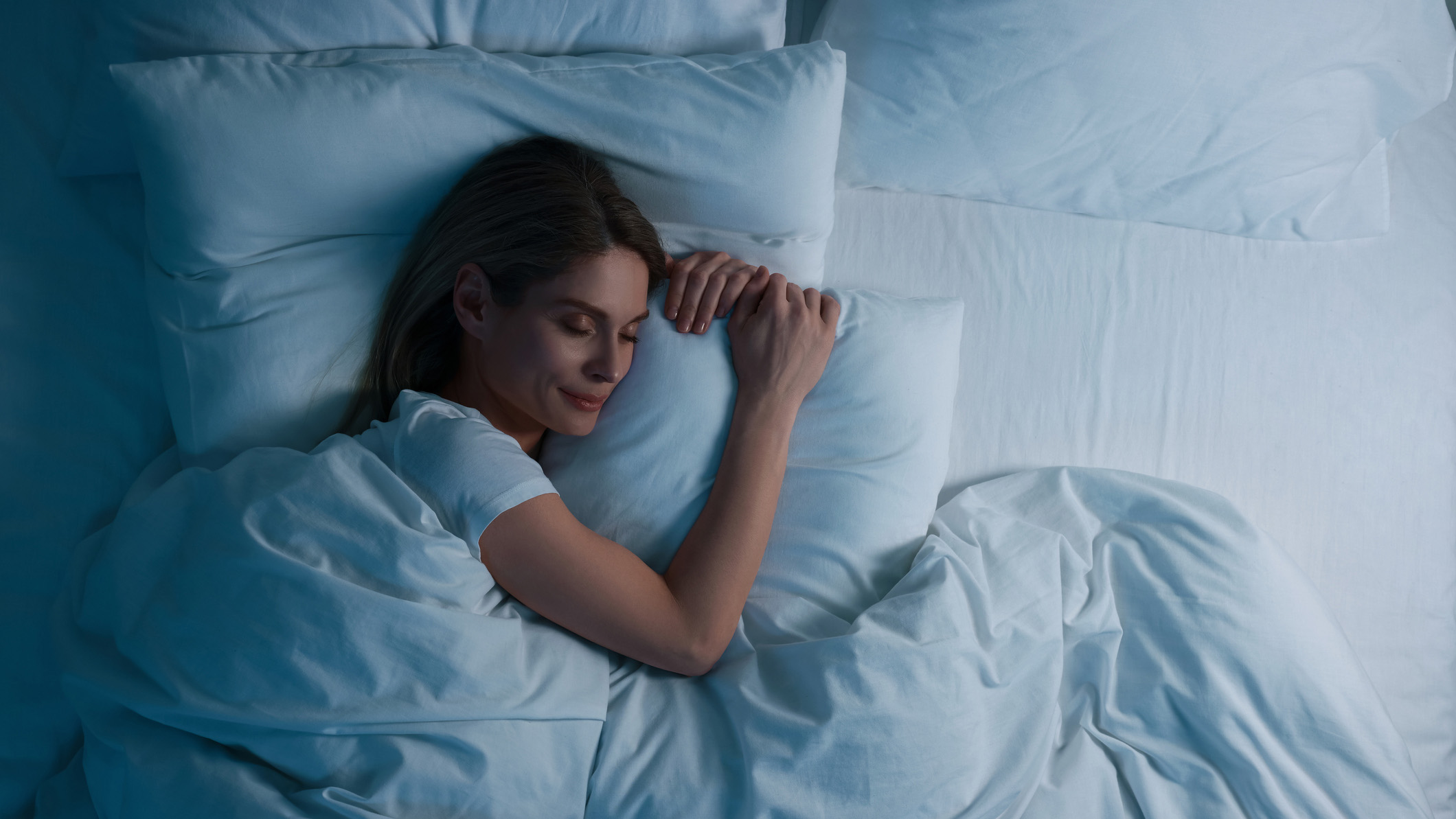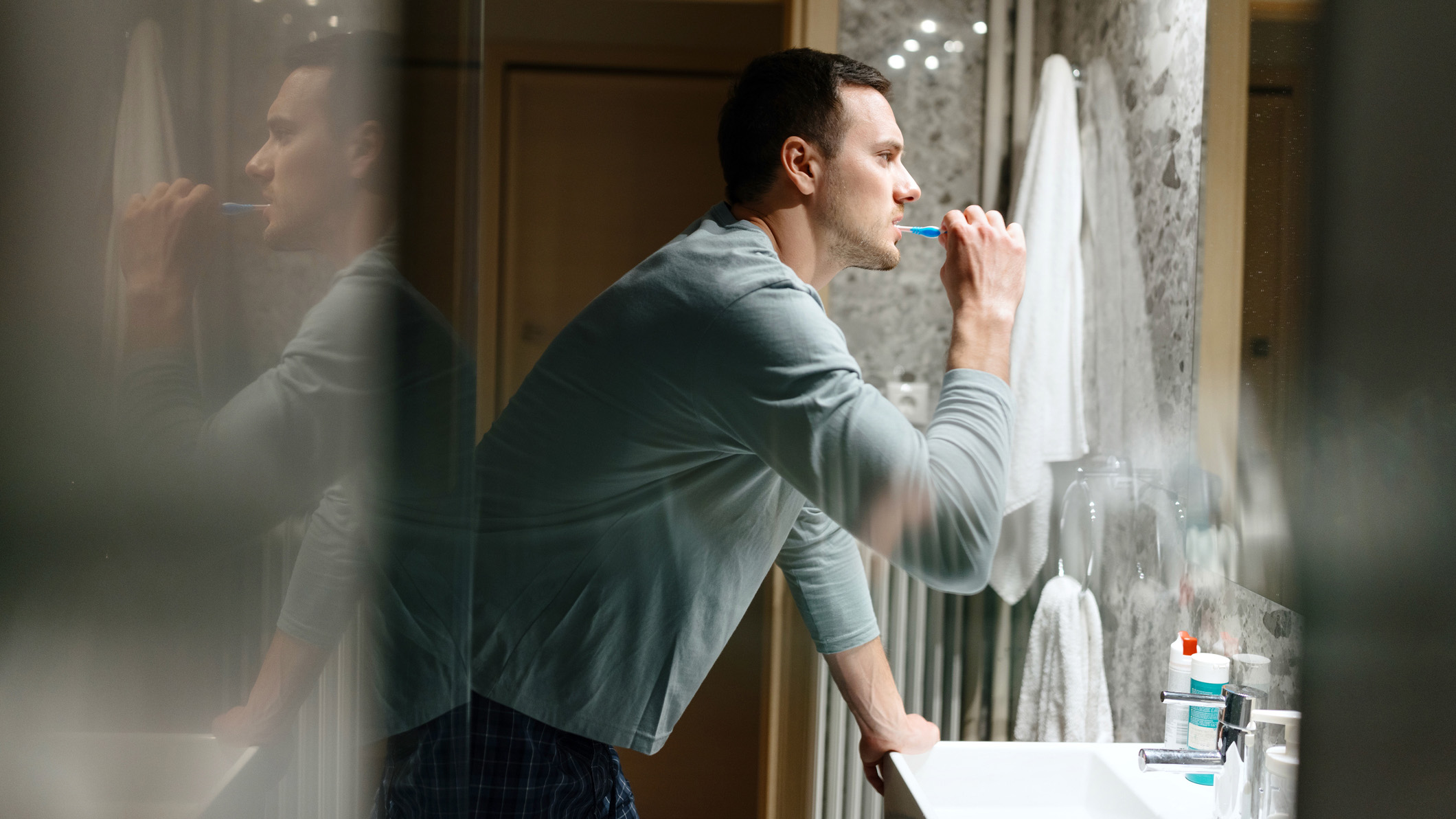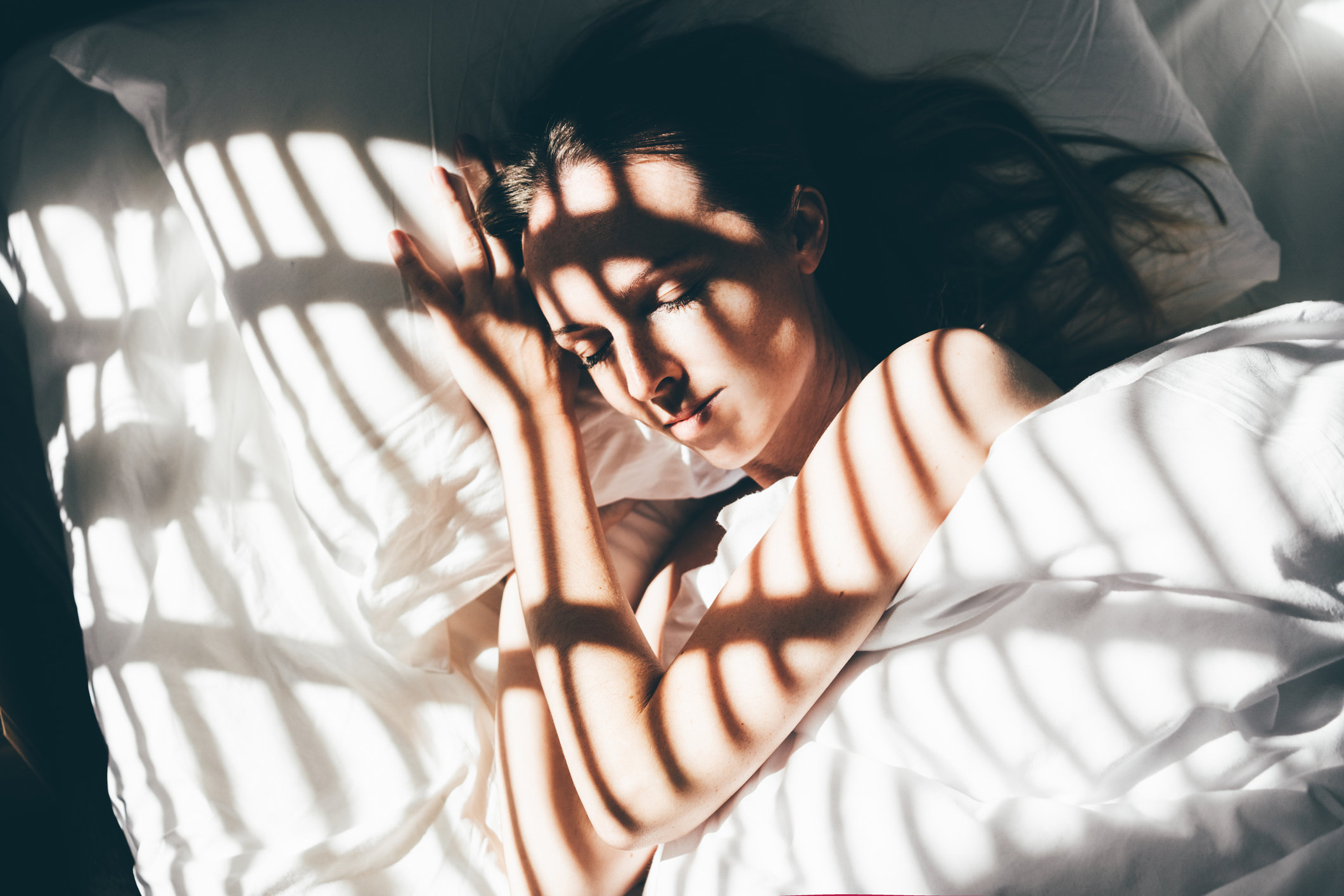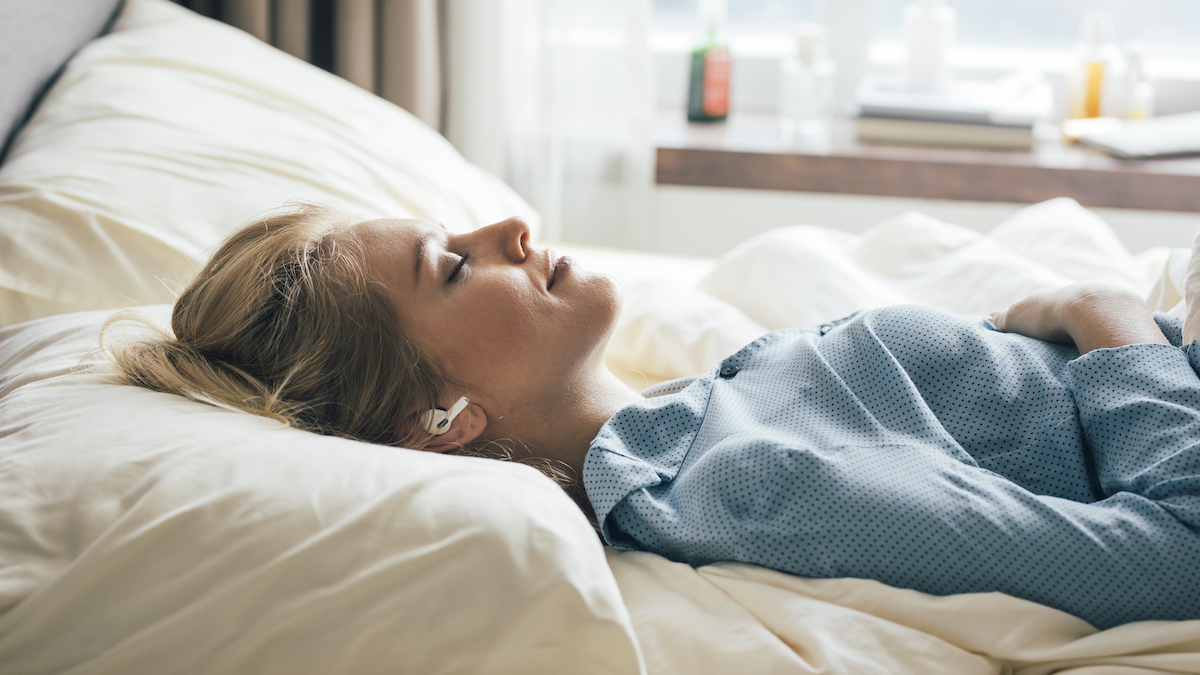
As a sleep writer, I know that the perfect nighttime routine should help you unwind and feel relaxed, so your mind isn't racing when you finally get into bed. But what is the perfect nighttime routine, and what steps should you follow to help you fall asleep fast?
While there are plenty of ways to help sleep throughout the night, such as investing in the best mattress for your sleep position, I find that there are some simple yet effective changes you can make to your nighttime routine that are free of charge.
Here, I'll talk you through three small things you can do before bed that I find to be relaxing and that in turn will help you fall asleep fast. These steps are easy, cost-effective, and backed up by sleep experts. I'll also explain how long it should take you to fall asleep at night, so you'll be able to tell whether or not your nighttime routine needs a refresh to help you sleep faster.
3 nighttime routine steps that help me fall asleep fast
1. Brushing my teeth an hour before bed

This piece of advice was given to me by James Wilson, sleep expert at MattressOnline, for our guide to falling asleep faster. Your nighttime routine should start an hour before bed - and it shouldn't involve brushing your teeth.
Instead brush your teeth right after your last meal, so you don't have to think about doing it right before bed. This can improve your sleep as brushing your teeth right before you get into bed – especially if you turn on your stark bathroom light – will actually wake you up, so it will take you longer to fall asleep once you're in bed. And the same goes for other routine nighttime habits, such as getting changed, washing your face, or getting any clutter off your bed.
"Before you start relaxing, make sure you have done everything you usually do before bed, like getting into your PJs and brushing your teeth,” Wilson adds. “That way, you can jump straight into bed when you feel sleepy, rather than doing anything that may wake you up."
2. Choosing the best temperature for sleep

At least half an hour before bed, I open the window to let some cold, fresh night air into the room and turn the heating down to below 21°C, as a new study shows the best temperature for quality sleep is between 20 and 25 °C (68 and 77 F).
There is nothing worse than feeling warm and stuffy when trying to sleep (and this can be made worse if you're anxious about something), so I find that a cooler room temperature and allowing night air to circulate through the room can help me to feel relaxed and refreshed. You can do this in wintertime, too. Just make sure to add a nice weighted blanket under your duvet or comforter if you feel chilly.
3. Listening to a guided meditation

Ever since I tried a fall asleep fast method on YouTube, I rely on guided sleep meditations whenever I can't seem to relax. The perk of guided sleep meditations - which are videos or audio files that use a calming voice to give you instructions on how to relax your body and mind - is that they're particularly handy if you're new to sleep meditation or have trouble remembering steps.
You can find plenty of guided sleep mediations on YouTube, Spotify or wellness apps such as Calm. Some feature a voice telling you how to relax, some use a calming narrator telling you a grown-up bedtime story, and some incorporate the sleep visualization method that gives you soothing images to imagine.
How long does it take to fall asleep?
When I say these nighttime routine steps will help you fall asleep fast, you may be wondering what exactly qualifies as "fast". While a lot of viral sleep hacks have promised that a good night's sleep is as little as 10 seconds away, this is not healthy. In fact, it's a sign of severe sleep deprivation.
When debunking whether it is possible to fall asleep in 10 seconds, Dr Nicola Cann of The Family Sleep Consultant told me that falling asleep under five minutes "would ring alarm bells" for her. "The transition between being awake and being asleep is a gradual process," says Dr Cann. "It's not like switching off a light, even though it can feel that way."
Meanwhile, Dr Neil Stanley of The Sleep Consultancysays a healthy adult will fall asleep within seven to 12 minutes, while Dr Theresa Schnorbach for Emma Sleepsays it can take longer: "Generally speaking, a sleep onset latency of 15 to 30 minutes indicates good sleep quality."







